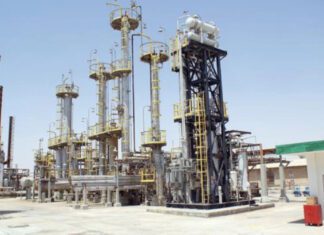
Early Saturday morning, the Israeli military announced it had completed an overnight assault on Iran, targeting facilities associated with missile production and air defense systems. The operation, which started around 2:00 a.m. local time, included a series of precision strikes intended to incapacitate missile manufacturing sites and other installations designed to hinder Israel’s air capabilities.
In a statement, the Israeli military said, “We bombed surface-to-air missile arrays and additional Iranian aviation capabilities that were intended to restrict the Israeli air operation in Iran.” It emphasized that any further escalation from Iran would compel Israel to respond.
The Iranian Air Defense Command responded, stating that its forces had “successfully thwarted” the assault and contained the damage to certain sites in Tehran, Khuzestan, and Ilam provinces. “Despite previous Iranian warnings about the need to avoid any adventure, the Zionist entity targeted military sites,” the statement read, calling on citizens to “stay calm, follow national news channels, and disregard enemy rumors.”
Reports from Tehran early in the attack described the sound of several explosions west of the capital, leading to public speculation over whether the noise stemmed from Israeli strikes or Iranian air defense countermeasures. Iranian news outlet Fars News confirmed the presence of multiple blasts.
As of Saturday, the Israeli Defense Forces (IDF) remain on “offensive and defensive alert” while monitoring developments from Iran and its regional allies. Israeli authorities are evaluating the overall security situation, urging the public to stay informed of any further advisories. “We must continue to be vigilant and obey home front instructions so that we can update the public immediately on any new developments,” the IDF stated.
The Israeli operation follows heightened security measures implemented on Friday. Israeli media reported that Israel was finalizing plans to strike Iran after completing necessary preparations and selecting targets. The escalation comes three weeks after Iranian missiles reportedly hit Israeli military sites, including the Nevatim airbase.
Meanwhile, Iranian officials underscored the country’s preparedness to retaliate in the event of further attacks. Esmail Baghaei, Iran’s Foreign Ministry spokesperson, warned that Tehran would respond “with full force” if Israel continued its aggression. Baghaei denounced a report from The New York Times (NYT) suggesting Iran might avoid retaliating if Israeli strikes were limited. He dismissed the report as “deceptive and empty of content.”
According to the NYT, Iranian leaders have instructed their armed forces to brace for potential escalation and avoid provoking a full-scale conflict. The report, quoting anonymous Iranian officials, indicated that Iran might only respond if Israeli actions cause “widespread damage and significant loss of life.”
The air assault also prompted commentary from Iranian officials, including Parliament Speaker Mohammad Bagher Qalibaf, who claimed that Israel has faced setbacks in the region. Speaking at an Iranian Revolutionary Guard Corps (IRGC) meeting, Qalibaf said, “The Israeli occupation has been defeated by Gaza and Lebanon,” referring to recent conflicts with Hamas and Hezbollah.
In a show of solidarity with Hamas, Iranian Supreme Leader Ali Khamenei reportedly sent his sons to meet with Hamas officials in Tehran on Friday. They conveyed condolences for the death of Yahya Sinwar, Hamas’ political bureau chief, in a symbolic gesture meant to demonstrate Iran’s alliance with the group.
US support for Israel in the region has also intensified, as Israel’s Channel 12 reported that American fighter jets have been deployed to reinforce Israel’s military capabilities. Tensions remain high as both sides assess the aftermath of the latest Israeli assault, with international attention focused on whether the situation will lead to broader regional conflict.








